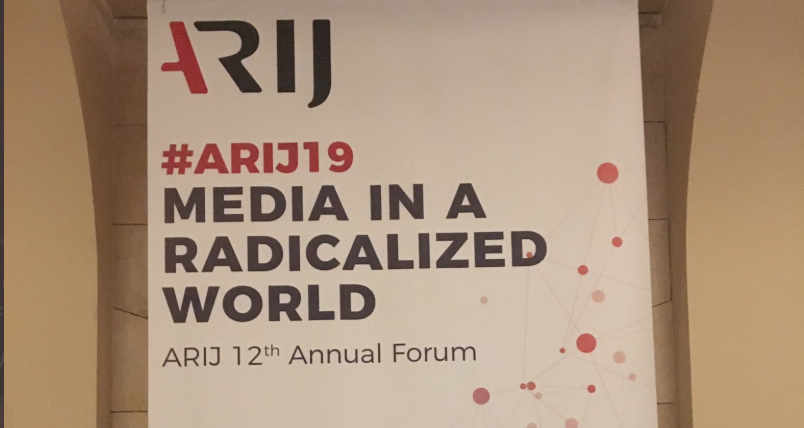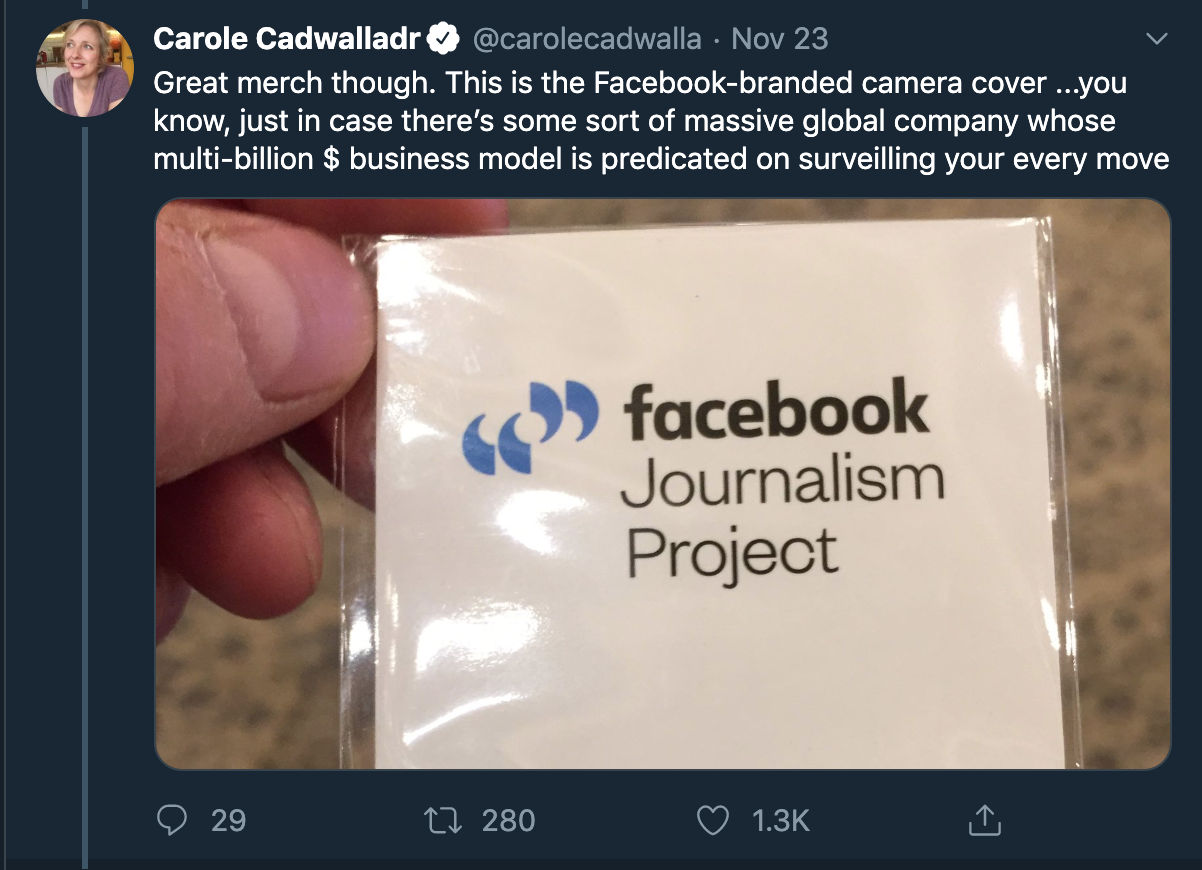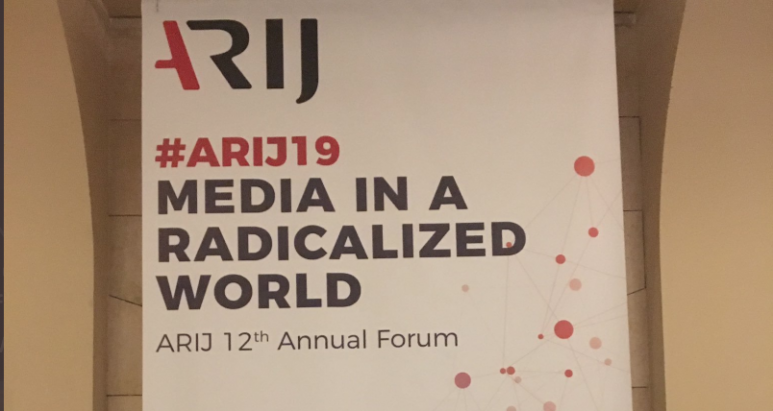Last week, Media Diversity Institute gave a workshop titled, “Storytelling to Cure Social Divisions” to the ICFJ (International Center for Journalists) Fellows at the ARIJ (Arab Reporters for Investigative Journalism) conference in Amman, Jordan.
“How does disinformation play out in your countries?”, asked Communications Manager Anna Lekas Miller, who lead the workshop. In recent months, both Iraq and Lebanon have experienced social uprisings which has lead to unprecedented levels of both disinformation, and disinformation debunking.
“Let’s talk about how this is playing out—and how it impacts diversity?

The discussion that ensued showed the diversity of the ICFJ MENA fellows present. In Yemen, the local media promoted rumors about Jewish minorities so much, that most of Yemen’s Jews fled to Israel, shared on participant. In Sudan, rumors about female journalists circulate on WhatsApp groups, making it almost impossible to get any accountability if something happens to them, shared another.
After the workshop, participants were equipped with the skills to recognize the ways in which disinformation preys on social divisions in their countries.
Every year, Arab Reporters for Investigative Journalism (ARIJ) brings together hundreds of journalists from across the Arab world to network, and discuss new tactics to collaborate on investigative journalism projects in the region. This was their 12th annual gathering.
While Media Diversity Institute has participated in the conference in years gone by, this year’s theme was particularly relevant to our work: Media in a Radicalized World.
This year, the conference came under criticism for being sponsored by Facebook—which, in addition to being the subject of the Cambridge Analytica scandal has come under fire for helping spread disinformation, and not adequately addressing hate speech. Facebook provided each participant with a “swag bag,” which—without a shred of irony—came complete with a web-cam cover for journalists to avoid unwanted surveillance.

Many of the journalists present at the conference shared stories of being harassed or threatened on Facebook, only to report the abuse and have it dismissed by moderators. Facebook’s representatives listened intently, promising to look into the abuses.
What the ARIJ organizers did right, was inviting Carole Cadwalladr to give the keynote speech—in which she used every opportunity to rail against the tech giant elephant in the room.
“We have to use the master’s tools against them,” she said, addressing the tech giant elephant in the room. Unfortunately, it is getting more and more common for big tech companies to sponsor journalism conferences—now the question is, whether or not that will impact reporting on these companies.
“Journalism needs money from wherever it can get it, but we can’t let that cloud critical reporting.”
According to Cadwalladr, she had requested meetings and comment on numerous occasions only to have them ignore her. While giving her keynote, she decided to try one last time.
“Is anyone from Facebook here,” she asked?
Nenad Radoja
Contrary to popular belief, Lorem Ipsum is not simply random text. It has roots in a piece of classical Latin literature from 45 BC, making it over 2000 years old. Richard McClintock, a Latin professor at Hampden-Sydney College in Virginia, looked up one of the more obscure Latin words, consectetur, from a Lorem Ipsum passage, and going through the cites of the word in classical literature, discovered the undoubtable source.
